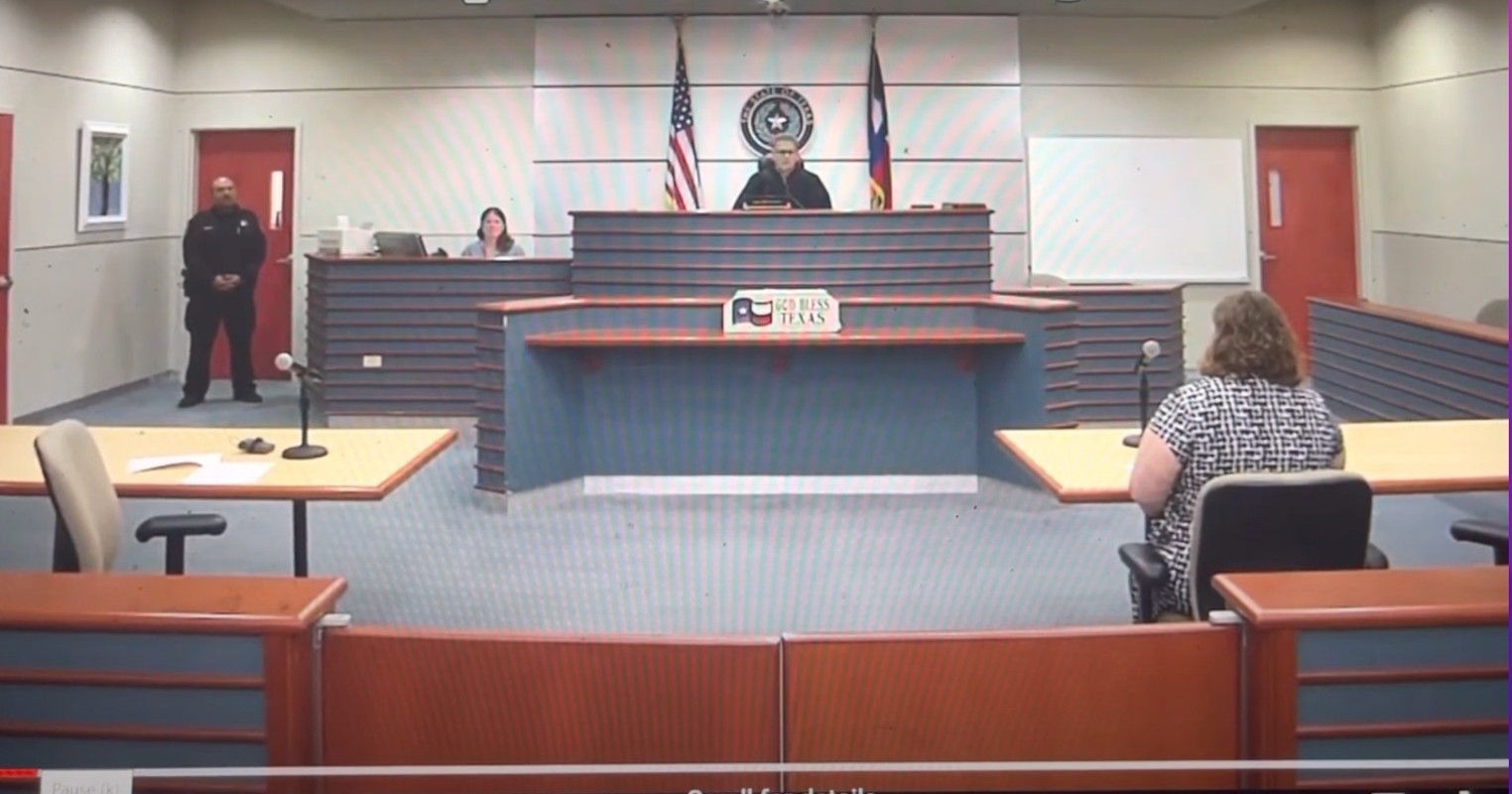Watch: Tenant Named ‘Danny Deadbeat’ in Mock Trial for Texas Eviction Training


Justice of the Peace judges receive their training from the Texas Justice Court Training Center. One of the training videos they might have seen shows an example of how an eviction case could go down. In the video, a judge takes the trainees through a mock eviction trial featuring a fake landlord and a fake tenant.
The fake landlord is named “Linda Landlord.” The fake tenant’s name is a little less gracious. Meet “Danny Deadbeat.”
Mark Melton, the founder of Dallas Eviction Advocacy Center, shared the video this week, saying that it could create a bias in the Justice of the Peace court system against tenants facing eviction. The video was originally published on the Texas Justice Court Training Center’s YouTube channel, but it has since been removed.
Unluckily for the training center, Melton had copied the video and posted a portion of it on his channel for everyone to see.
At the start of the mock trial, the mock judge reminds everyone to be respectful in his court. “This afternoon is our eviction docket,” he says. “I want to remind everyone that is present that some of the most challenging cases I deal with as a judge with people who can become emotional are that of evictions. I would just remind you that our goal is to remain very professional and I can assure you that this judge will strive to be very fair and give everyone an opportunity to speak. … In my court, we’re going to be kind.”
That’s a noble way to start an eviction trial. But seconds later, the mock trial takes a hard turn.
“Alright, let’s call the first case,” the judge says. “It’s Linda Landlord versus Danny Deadbeat, Linda Landlord versus Danny Deadbeat.”
In the video, Linda Landlord showed up for the hearing. Danny Deadbeat did not.
“Did we call the defendant, Mr. Deadbeat’s name, outside?” the judge asks. Someone off camera says yes. So, the judge checks his files to see when the eviction notice was sent to Mr. Deadbeat. It was sent more than six days earlier, so the trial can proceed, the judge says.
“The statement itself was insensitive, obviously.” – Randall Sarosdy, Texas Justice Court Training Center
tweet this
Melton wasn’t too shocked when he saw the video. “It was par for the course because that’s how tenants actually get treated in JP courts every single day,” he said. “How are you supposed to demonstrate a lack of bias when you’re calling your mock trial tenant Deadbeat?”
Texas Justice Court Training Center removed the video from its channels not long after Melton pointed it out. Over the phone, Randall Sarosdy, general counsel for the training center, told the Observer he and his colleagues understood that language in the video was in poor taste.
“We absolutely have a long-standing, ongoing commitment to inclusion, diversity, fairness and justice, and making sure that we do everything we can so that our courts are fair to all parties that come before it. That’s our mission,” Sarosdy said. “That statement, unfortunately, we do regard it as inappropriate.”
He said the video was on the center’s YouTube channel for judges who couldn’t make it to other training sessions. It was uploaded about five years ago, and Melton said it had been viewed only a little more than 500 times before it was taken down. Sarosdy said the video had not been used for training in years.
“The statement itself was insensitive, obviously,” Sarosdy said. “It was, I think, kind of a bad attempt at humor that clearly missed the mark. We are very sensitive to that sort of thing, and I would say we’ve probably become more sensitive.”
Sarosdy also said the training center does work on its own to promote equal access to the courts. For example, it provides information packets on how tenants can represent themselves if they don’t have an attorney, and include links on its website to help connect people to legal aid.
He said the center always strives to be sensitive and accommodating to anyone who may come through the JP court system. “Our goal is to be sensitive and to make sure that we’re doing everything we can, so that the Justices of the Peace do administer justice fairly, impartially,” Sarosdy said. He added that the training center welcomes people’s comments when the center is not achieving that goal, as Melton did in sharing the training video.
The video wasn’t all bad, though, Melton said. In fact, the judge takes the mock trial through a process he said isn’t always followed in eviction cases. If a tenant doesn’t show up for the eviction trial, the court can move forward with a default judgment on the case. In a default judgment, the court assumes what the landlord has in their petition for eviction is true.
“How are you supposed to demonstrate a lack of bias when you’re calling your mock trial tenant, deadbeat?” – Mark Melton, Dallas Eviction Advocacy Center
tweet this
“What the judge did in this example was he went through those things and he identified the petition states these things, and so we’re assuming they’re true,” Melton explains. But something was missing from the petition in the mock trial.
“The petition doesn’t allege … a notice to vacate was given,” Melton said. “And so then he made the landlord go under oath and enter evidence, which was her testimony that said, ‘Yes, I gave this notice to vacate. I did it on this date, in this way,’ which satisfies the law.”
Between what was filed in the petition and the landlord’s testimony, all the boxes are checked to move forward with eviction, Melton said. In reality though, “That never happens,” Melton said. “The judges don’t typically look at the petition. If the tenant doesn’t show up, they just say, ‘Okay, tenant’s not here. How much is owed? X-thousand dollars?’ Bang, the gavel. Judgment for the plaintiff. Next.”
So, other than the Danny Deadbeat moniker, the training was fine, Melton said. It just confirms what he has thought for years, which is that there’s some implicit biases within the JP courts.
“When I saw it wasn’t like an ‘Aha, gotcha!’ type of moment,” Melton said. “I’ve been saying this for years, and, you know, here’s just an example of some of the training they get that just illustrates this explicit bias against tenants. When it’s formalized in their training, obviously, that’s a problem in and of itself, but there’s still some kind of bias against tenants just in general where people think ‘Well, if they didn’t pay their rent then they must be deadbeats.’”
That hasn’t been his experience at all, he said.
“Especially throughout this pandemic, and even today, where these are people that in large part lost a job or got a flat tire or their kid got sick, or you know, something else happened,” Melton said. “I mean, even something as silly as, you know, like inflation, right?
“People have been working the same job making the same money for years,” he explained. “Everything’s going along fine, and then all of a sudden the price of gas goes up, the price of groceries goes up, their lease renews at, you know, $200 or $300 more a month than it was before. And all of a sudden they can’t afford to pay other bills. They’re not deadbeats, right? The economy inflated around them, and they’re the victims of that because their income didn’t go up alongside it.”
[ad_2]
Share this news on your Fb,Twitter and Whatsapp
NY Press News:Latest News Headlines
NY Press News||Health||New York||USA News||Technology||World News





